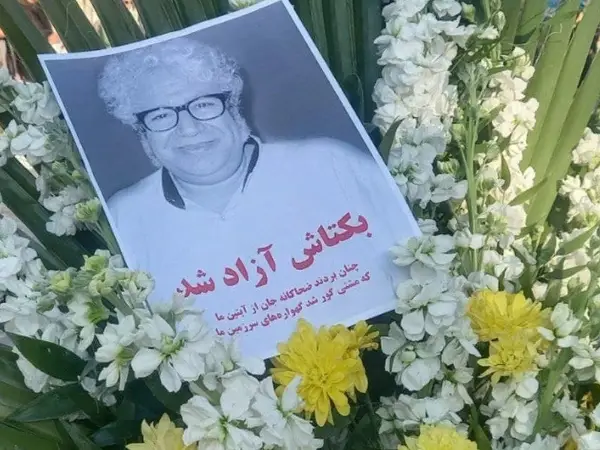Amnesty International has slammed Iran for prisoner deaths resulting from deliberate denial of medical care, turning prisons into "waiting rooms for death".
In a new report, the global rights organization has documented how prison authorities routinely cause or contribute to deaths in custody, including by blocking or delaying prisoners’ access to emergency hospitalization. The 180-page briefing published on April 12 is based on reviewing ninety-six cases of death in custody in thirty prisons across Iran in the past twelve years.
In many cases, including the case of Nader Alizehi in Zahedan in 2017, prison authorities and its medical staff accused prisoners of "faking" or "exaggerating" their illness. When Alizehi sought medical care, he was sent away by prison clinic staff with gastrointestinal medication and died at the age of twenty-two in prison due to a heart condition.
Another young man, Abdolvahed Gomshadzehi, died in the same prison in Zahedan after prison officials refused to hospitalize him despite prison doctors' warning. The cause of the nineteen-year-old Gomshadzehi's death was neglected blood clots in his brain which he had sustained because of beatings during his arrest and interrogations two years earlier.
Like Gomshadzehi, at least eleven other prisoners out of the ninety-six, died after being denied medical care for injuries resulting from incidents that occurred at the time of their arrest or while they were in prison. The death of the remaining eighty-five resulted from heart attacks and strokes, gastrointestinal complications, respiratory complications, kidney problems, Covid-19 or other infectious diseases for which they had not received the required care.
“Deaths in custody resulting from the deliberate denial of healthcare amount to arbitrary deprivation of life, which is a serious human rights violation under international law," said Diana Eltahawy, deputy regional director for the Middle East and North Africa at Amnesty International who called the authorities' disregard for human life "chilling".
Denial of medical care affects ordinary prisoners as well as political prisoners and prisoners of conscience. In January, Iranian writer Baktash Abtin died of Covid-19 complications after he was denied timely treatment at Tehran’s notorious Evin prison. The Iranian Writers' Association alleged that Abtin’s condition was the direct result of “deliberate delay” to start his treatment.
Abtin was serving a six-year sentence for "propaganda against the state" and “assembly and collusion against national security”, two of the vaguely defined charges categorically brought against political dissidents.
In February 2021, another prisoner of conscience, Behnam Mahjoubi, aged thirty-three died in hospital after falling into a coma. Mahjoubi who was imprisoned for participating at a protest rally alleged he had suffered brutal torture in a psychiatric hospital during his imprisonment.
Out of the ninety-six prisoners whose deaths in custody were reviewed by Amnesty International, twenty-three were between 19 and 39 years of age, and twenty-six of them were between forty and fifty-nine.
Sixty-four of all these prisoners died inside their prison cells meaning they were not given even basic medical supervision in their final hours. Some died while in poorly equipped prison clinics, and at least 26 prisoners died during transfer or shortly after admission to hospital, following deliberate delays by prison medical staff and/or prison officials.
In at least six cases, critically ill prisoners were moved to solitary confinement, punishment wards or quarantine sections - four of these died alone in prison while two were eventually authorized for hospital transfers, but it proved too late, Amnesty said.
